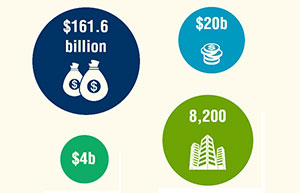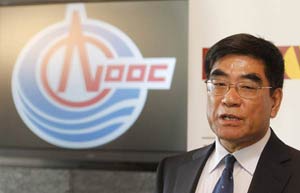China, ROK accelerate FTA talks
(Xinhua) Updated: 2014-07-08 15:55China and the ROK have experienced two decades of booming bilateral trade. Two-way trade surpassed $270 billion in 2013, nearly 50 times the volume in 1992, making the ROK China's sixth-largest trade partner and third-largest source of imports.
As the world recovery falters, the FTA should be a profound and significant part of the two countries' future relations.
It would boost trade, investment and even GDP growth of the two economies. It would help the ROK reinforce its position in the Chinese market, as its weakening technological leverage allows in US and European rivals, said Mei.
In 2013, around one fourth of ROK exports went to Chinese buyers, but the ratio has begun to drop. The ROK's businesses pinned their hopes on the FTA to help their products re-gather steam in the Chinese market.
As for China, apart from cheaper car and electronics imports for consumers, Liaodong Peninsula, the country's closest point to the ROK, will receive the most benefits from the FTA, with Korean investment in the peninsula expected to surge.
Mei said China, engaged in FTA talks around the world, expects a successful negotiation with its neighbor to set a good example for future talks.
China has signed 12 free trade agreements with countries or alliances including Switzerland, New Zealand and the Association of Southeast Asian Nations.
Hopes of larger FTA
Wei Zhijiang, director of the ROK Research Institute under Sun Yat-sen University in south China's Guangdong province, said the China-ROK FTA can push forward negotiation for a larger one that includes Japan in the plan.
In May, the China-Japan-ROK agreement for promotion, facilitation and protection of investment took effect, and this is widely believed to be a prelude to the foundation of an FTA between the three countries.
However, territorial and historical disputes between Japan and its two neighbors respectively have cast a shadow over the prospects. Latest evidence can be found in the shrinking direct investment from Japan to China, with the volume plunging 42.2 percent year on year during the January-May period.
The FTA of the three countries was first envisioned in 2002 and the negotiation started two years ago, with the process dawdling partly due to political issues and partly due to a less interested Japan.
The situation is likely to change now, however, as a China-ROK success may push Japan to be more involved or face losing the enormous Chinese market to ROK enterprises.
In the first five months of 2014, investment from the ROK to China soared 87.9 percent year on year. With favorable conditions brought by the bilateral FTA, a wide range of ROK-made products from automobiles to electronics are likely to become Chinese new favorites.
|
 |
 |
| South Korea eyes China's financial market | Xi hails South Korea's growing international influence |
- Global investors hunger for dim sum bonds
- Property developer uses helicopters and models for promotion
- China GDP to hit 6.6% next year: Credit Suisse
- China's arid north feeds water-rich south
- China orders 123 Airbus helicopters
- China urges US to stop abusing remedy measures
- Top trade partner, gateway to Europe
- German machinery producing success

















